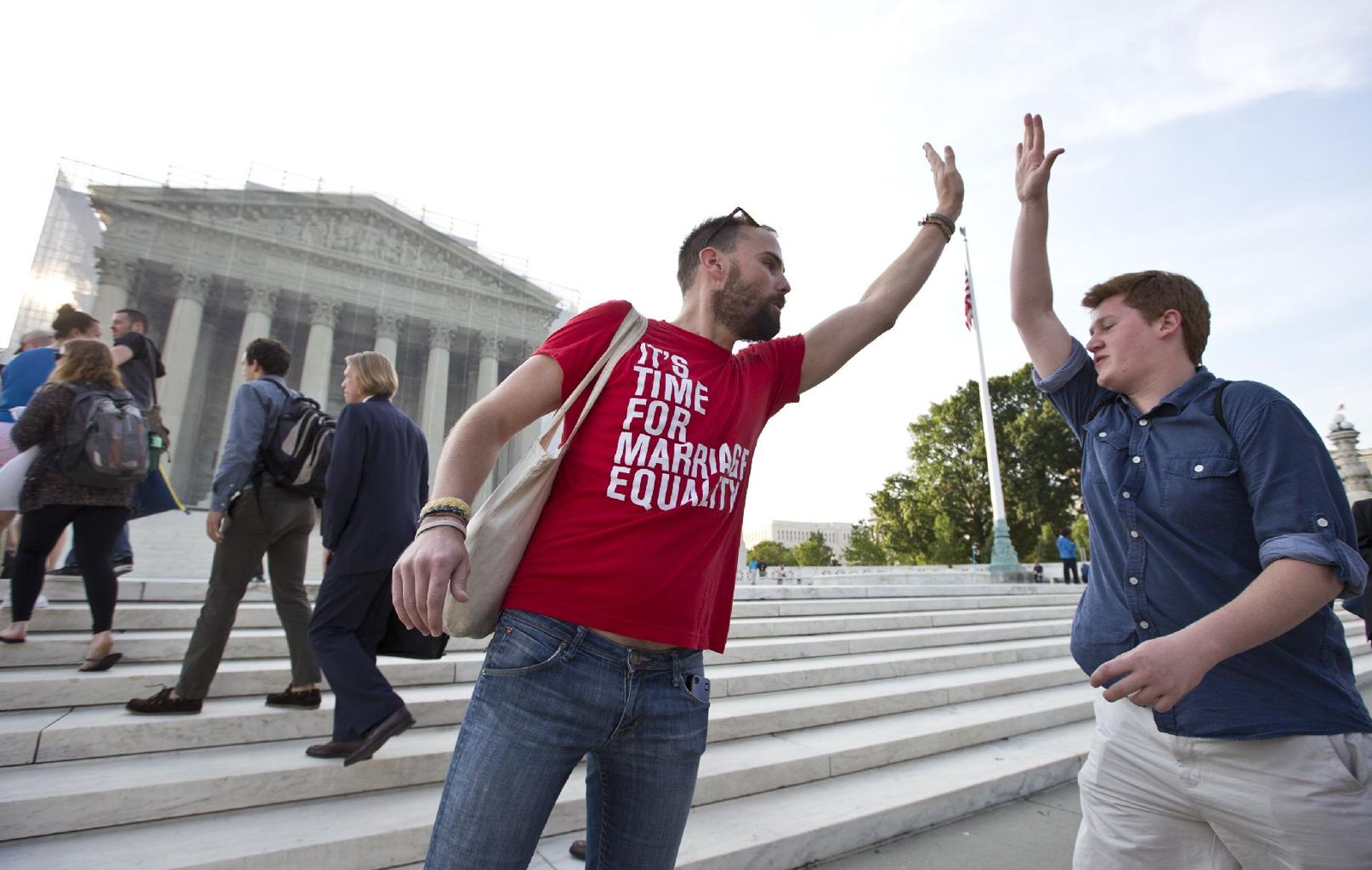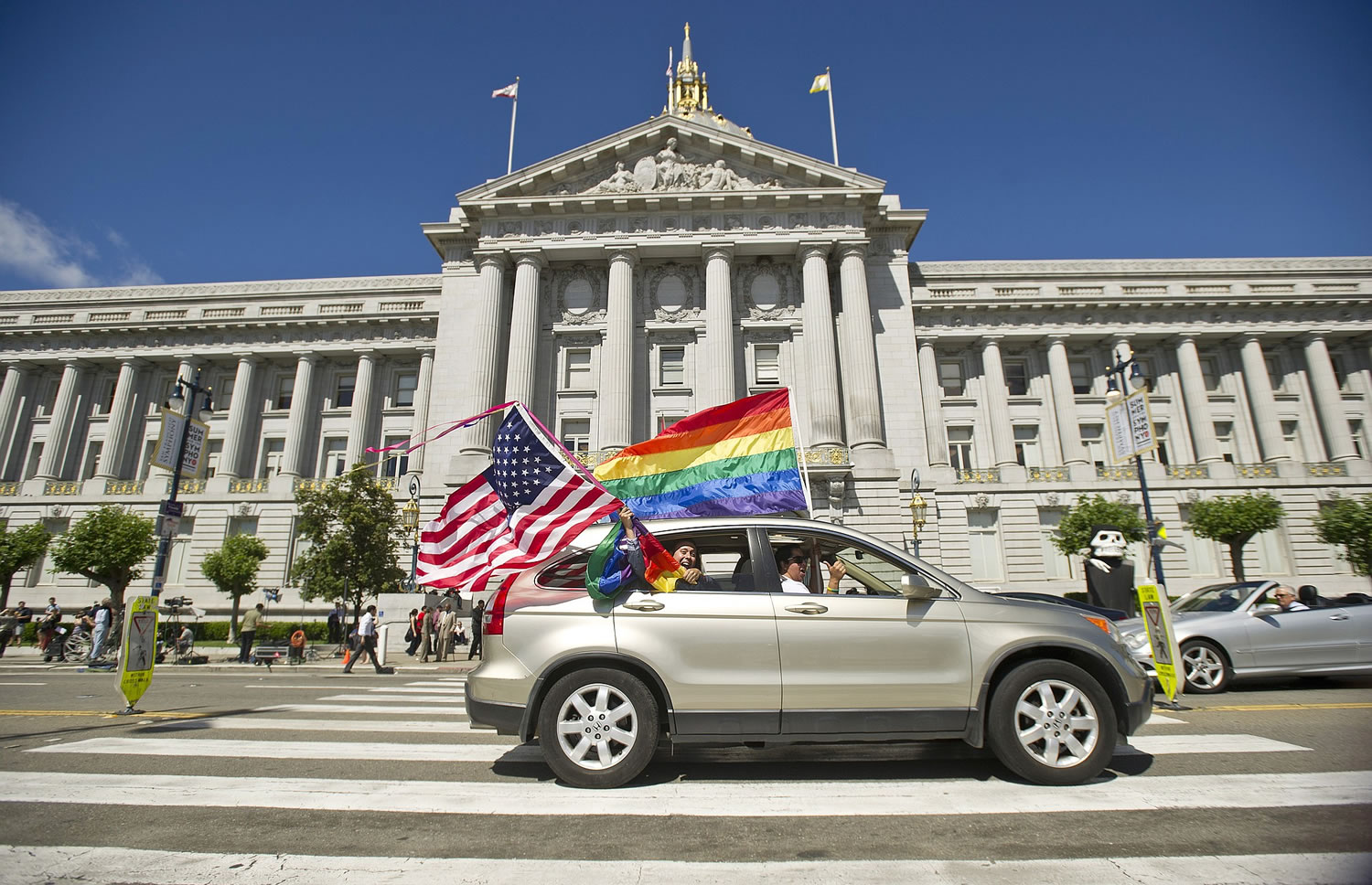OLYMPIA -- Washington state approved same-sex marriage last November, as voters upheld a law that the Legislature passed earlier in the year. Since the law took effect in December, more than 2,400 gay and lesbian couples have gotten married in the state.
Here's how key lawmakers and others are reacting to Wednesday's U.S. Supreme Court decisions that struck down a provision of a federal law denying federal benefits to married gay couples and cleared the way for the resumption of same-sex marriage in California:
"I could not be more proud and excited to see the U.S. Supreme Court take a long overdue stand for equality, fairness and family. Marriage is for two people in love and it is past time for our country to not just recognize that, but honor it." -- Washington state Gov. Jay Inslee.
"Today's historic decisions by the United States Supreme Court overturning DOMA and dismissing the challenge to marriage equality in California are the culmination of the great civil rights struggle of our current generation. It would not have happened without the brave, tireless work of countless thousands of determined Americans, both gay and straight. Together, we have changed the course of history for the better, expanding equality and opportunity for all." -- Washington state Sen. Ed Murray, the prime sponsor of the state's gay marriage bill that passed last year and was upheld by voters in November.
"The Supreme Court got it wrong when it said that the state can tell the federal government how it must define marriage. The federal government, on behalf of those who elected them, should be able to recognize the unique value of relationships that provide children a mother and father." -- Joseph Backholm, executive director of the Family Policy Institute of Washington.
"Thanks to the LGBT and allied communities' commitment to achieving equality, today's ruling is a true demonstration that the tide is turning, and it is turning rapidly across the country." -- U.S. Sen. Patty Murray, D-Wash.
"This is a historic day for equal rights in our nation and in Washington state," said Cantwell. "Our state was a trailblazer in recognizing the right of same-sex couples to marry and helped in setting the stage for this historic ruling. All Washingtonians will receive the equal treatment they deserve in the eyes of federal law for the first time. Our state's same-sex married couples will now get the same federal benefits and recognition as heterosexual couples. -- U.S. Sen. Maria Cantwell, D-Wash.
"All lawful marriages performed in Washington State will now be recognized equally by the federal government for purposes of joint income tax filings, Social Security benefits, veterans' benefits and more. With today's ruling, all Washington families are now treated equally under the law. Our state and our country have come a long way." -- U.S. Rep. Denny Heck, D-Wash.
"I don't believe the pursuit of happiness or the ability to start a family with the person you love should end at our state's borders. I'm glad today's ruling will begin to end this era of discrimination. I'll continue to fight to ensure our entire nation is a place where every family is given the respect and recognition it's entitled to." -- U.S. Rep. Derek Kilmer, D-Wash.
"The Court today affirmed what Washington voters already know, which is that all loving couples deserve equal treatment under the law. " -- U.S. Rep. Suzan DelBene, D-Wash.
"Equality had a good day today." -- U.S. Rep. Rick Larsen, D-Wash.
"By striking down DOMA, the Supreme Court has ruled in favor the Constitutional right to equality for all Americans regardless of who they love." -- U.S. Rep. Adam Smith, D-Wash.




